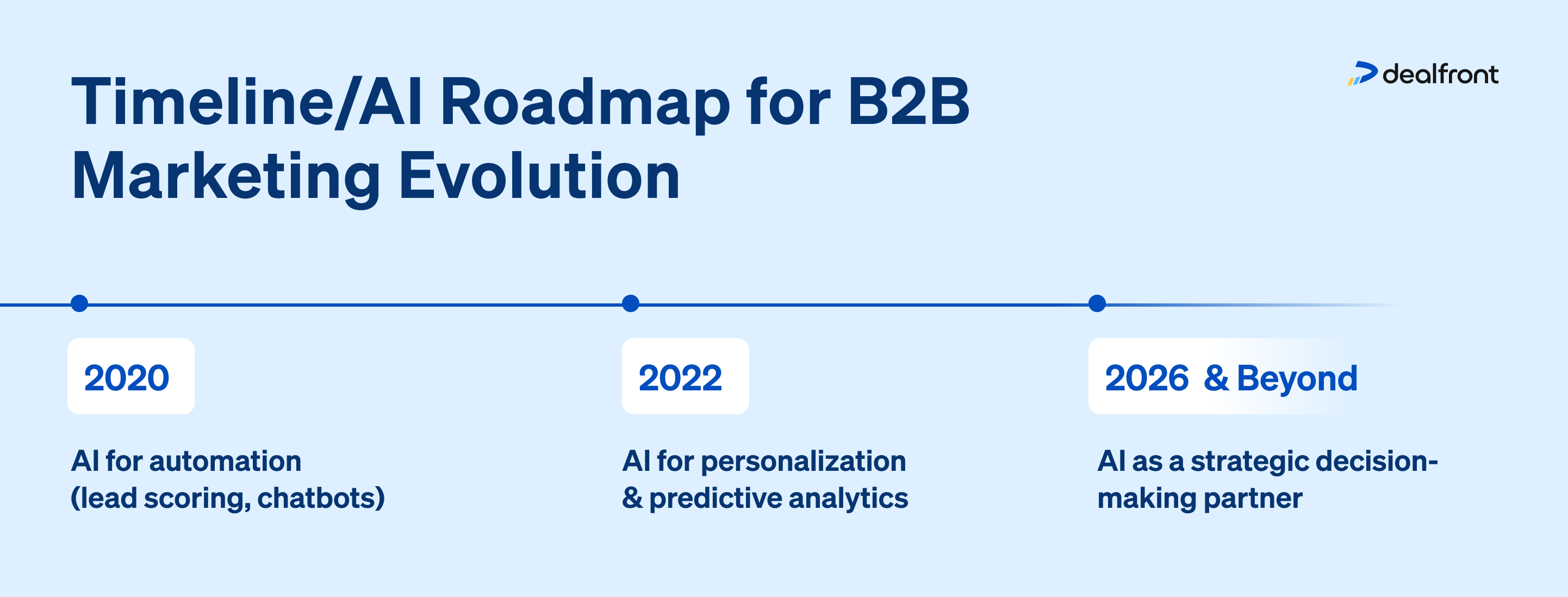Open Performance and Development With AI Automation for B2B Firms
AI automation is transforming the landscape for B2B companies. It lowers and improves operations reliance on human intervention. This change permits organizations to make quicker, data-driven choices. As organizations discover which processes to automate, they must additionally think about the right tools to apply. Challenges continue to be in embracing AI modern technology. The effects of these modifications could shape the future of numerous companies in means yet to be completely understood
Recognizing AI Automation in the B2B Context
As organizations significantly look for efficiency, recognizing AI automation in the B2B context ends up being vital. AI automation involves using advanced technologies to improve operations, decrease human intervention, and enhance decision-making procedures. In the B2B landscape, this can manifest in numerous forms, such as automating client service communications, handling supply chain logistics, or optimizing advertising and marketing campaigns. Firms can take advantage of AI to evaluate massive datasets swiftly, enabling them to determine fads and insights that notify strategic options. Furthermore, AI systems can integrate flawlessly with existing innovations, offering a natural platform for handling organization functions. This understanding prepares for companies to explore exactly how AI can change their procedures, boost productivity, and eventually foster lasting development in an affordable market.
Key Advantages of Carrying Out AI Automation

Identifying Procedures Ideal for Automation

Picking the Right AI Tools for Your Company
When B2B firms think about automating their procedures, picking the best AI devices comes to be essential for accomplishing preferred end results. Companies ought to begin by reviewing their one-of-a-kind requirements and goals, making certain alignment with company goals (B2B Growth Consulting). Examining the scalability, flexibility, and combination capabilities of possible devices is vital, as these variables determine long-lasting efficiency. Organizations needs to also think about user-friendliness and the degree of assistance given by vendors, as these elements can affect successful application. On top of that, analyzing customer evaluations and situation research studies can supply understandings right into how particular AI services carry out in real-world situations. By thoroughly choosing AI tools that fit their functional demands, B2B business can improve effectiveness and drive growth while reducing potential disruptions
Getting Rid Of Obstacles in AI Adoption
B2B companies typically come across significant challenges in adopting AI modern technologies, specifically problems associated with information high quality and resistance to alter management. Poor data top quality can prevent the performance of AI systems, while staff member hesitation to accept new processes can delay application efforts - Growth Systems For B2B. Attending to these difficulties is crucial for effective AI assimilation and maximizing its potential advantages
Information Quality Issues
Guaranteeing high information high quality is important for the successful fostering of AI innovations in business-to-business environments. Imprecise, insufficient, or outdated information can badly impede AI initiatives, bring about incorrect insights and inadequate decision-making. Companies often face obstacles such as data silos, inconsistencies throughout different resources, and a lack of standardized information styles. To overcome these problems, organizations need to buy information cleansing, combination, and governance processes. Applying robust information management techniques guarantees that the details fed into AI systems is trustworthy and relevant. Fostering a society of information top quality understanding amongst employees can enhance data precision over time. By resolving data high quality worries, B2B companies can release the full possibility of AI automation, driving performance and growth.
Change Administration Resistance

Determining the Impact of AI Automation
Gauging the effect of AI automation in B2B companies calls for a clear understanding of crucial efficiency signs (KPIs) that align with organization goals. Effective information analysis strategies are crucial for analyzing the results, while durable ROI evaluation approaches assist determine the economic benefits of automation initiatives. Together, these parts offer an extensive structure for evaluating AI's payments to organizational success.
Trick Performance Indicators
Secret efficiency signs (KPIs) work as vital devices for B2B companies to analyze the efficiency of AI automation campaigns. By establishing clear metrics, companies can gauge improvements in functional effectiveness, price reduction, and profits development directly attributable to automation. Typical KPIs consist of cycle time reduction, error prices, customer contentment scores, and worker performance levels. These signs supply insights into exactly how AI systems are maximizing processes and enhancing general efficiency. Furthermore, tracking KPIs enables business to recognize areas for more enhancement and to line up AI automation initiatives with tactical service purposes. Inevitably, a well-defined framework of KPIs guarantees that B2B business can quantitatively assess the effect of AI automation on this article their procedures and drive continual development.
Information Evaluation Strategies
Reliable data evaluation methods play an important function in assessing the effect of AI automation within B2B business. By using analytical methods, companies can recognize fads and patterns in functional information, permitting them to examine the efficiency acquires accomplished with automation. Techniques such as regression analysis and time collection projecting supply insights into just how AI-driven procedures affect efficiency and decision-making. Additionally, data visualization devices can successfully connect searchings for to stakeholders, assisting in notified tactical decisions. Artificial intelligence algorithms can further boost evaluation by anticipating future outcomes based upon historic data, using actionable insights. Inevitably, these methods enable B2B companies to gauge success and enhance their AI automation efforts, making sure alignment with business goals and enhancing total efficiency.
ROI Assessment Approaches
Assessing the roi (ROI) of AI automation is crucial for B2B business seeking to comprehend the financial effects of their technological efforts. Firms can utilize various ROI evaluation strategies to determine the effectiveness of AI executions - AI Automation For B2B. One reliable method entails calculating price savings by contrasting functional expenses before and after automation (B2B Growth Consulting). In addition, determining productivity renovations with essential efficiency indicators (KPIs) helps evaluate the benefits of AI. Client fulfillment metrics can also give insights into the effect of automation on solution high quality. To guarantee a detailed evaluation, firms should take into consideration both direct abstract benefits and monetary returns, such as boosted decision-making capabilities and affordable benefit. This multifaceted analysis enables B2B firms to make informed decisions pertaining to future investments in AI modern technology
Future Trends in AI Automation for B2B Business
What technologies lie ahead for AI automation in B2B firms? Arising trends show a substantial shift towards boosted data analytics abilities, allowing organizations to make even more informed decisions. Anticipating analytics will certainly come to be increasingly necessary, enabling business to prepare for market changes and customer requirements. Furthermore, the assimilation of AI with Net of Points (IoT) technology is expected to enhance procedures by giving real-time understandings and automation of procedures. Firms will certainly also concentrate on improving consumer experiences through personalized advertising driven by AI algorithms. Additionally, improvements in all-natural language processing will facilitate better communication in between businesses and clients. As these fads advance, B2B firms need to adapt to leverage AI automation effectively, making certain sustained growth and affordable benefit.
Frequently Asked Questions
What Industries Advantage the A Lot Of From AI Automation in B2B?
Manufacturing, finance, health care, and logistics industries benefit one of the most from AI automation in B2B. These markets leverage AI to optimize procedures, enhance decision-making, and boost general operational efficiency, driving considerable development and advancement.
Just How Does AI Automation Effect Employee Responsibilities and Responsibilities?
AI automation improves employee duties and obligations by streamlining repeated tasks, making it possible for workers to concentrate on tactical campaigns. This shift cultivates skill growth, improves productivity, and motivates partnership, ultimately driving business development and advancement.
What Are Common Misconceptions Regarding AI Automation in B2B?
Common mistaken beliefs regarding AI automation in B2B include concerns of work loss, beliefs that AI can completely change human judgment, and undervaluing the relevance of collaboration in between AI systems and workers for perfect outcomes.
Exactly How Can Organizations Ensure Data Privacy With AI Automation?
Businesses can guarantee data privacy with AI automation by carrying out durable security methods, sticking to governing compliance, carrying out normal audits, and training staff members on data handling practices to reduce dangers and safeguard sensitive info.
What Are the Costs Connected With Executing AI Automation?
The expenses connected with executing AI automation include software application acquisition, infrastructure upgrades, training personnel, recurring upkeep, and possible downtime throughout combination. Furthermore, companies might incur expenditures related to information protection and conformity procedures.
Determining the impact of AI automation in B2B firms calls for a clear understanding of key efficiency signs (KPIs) that align with business purposes. Secret performance signs (KPIs) serve as vital tools for B2B firms to analyze the efficiency of AI automation initiatives. Reliable information evaluation strategies play a crucial function in assessing the impact of AI automation within B2B firms. Assessing the return on investment (ROI) of AI automation is necessary for B2B business looking for to understand the economic ramifications of their technological efforts. What developments exist ahead for AI automation in B2B business?